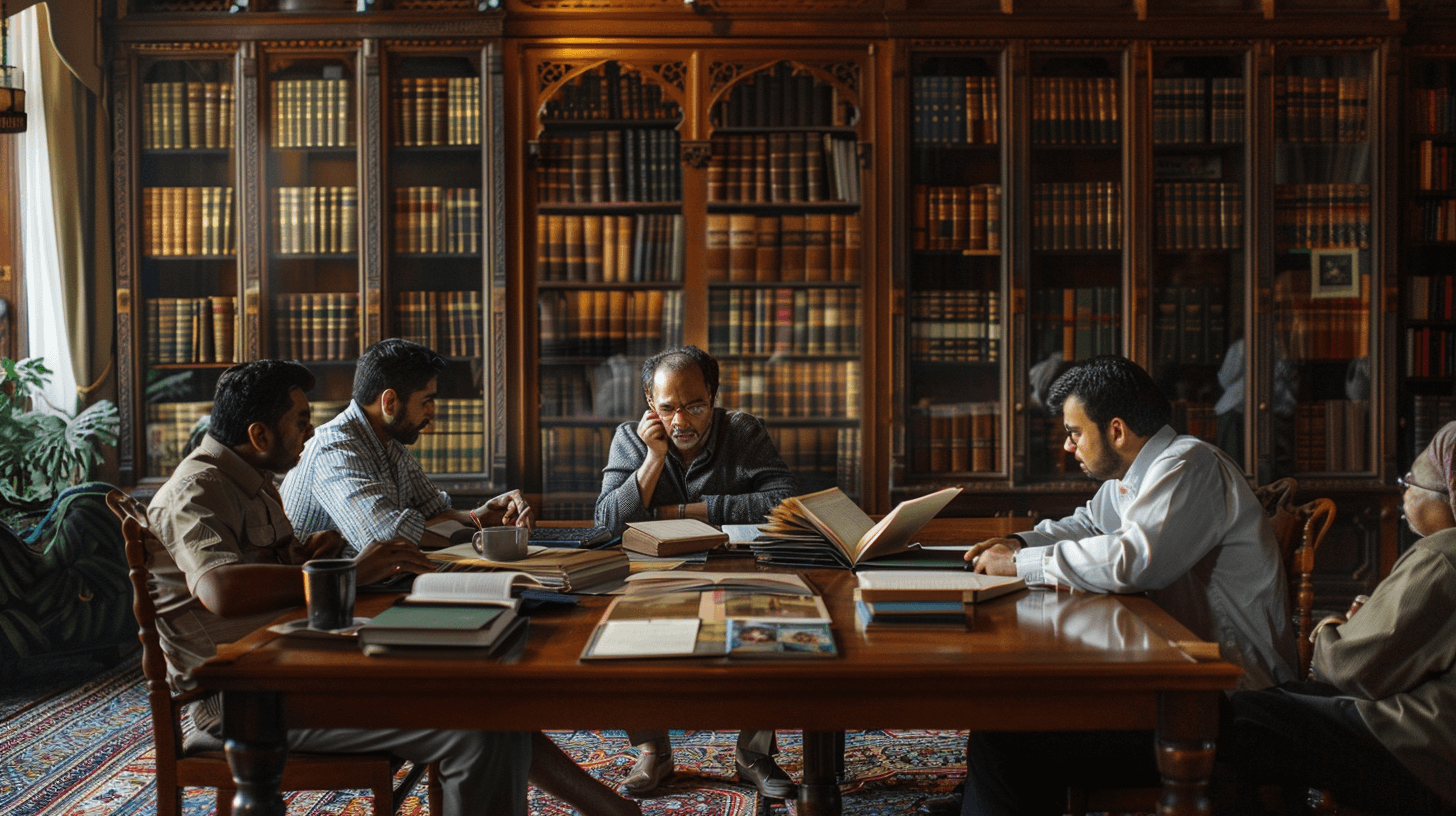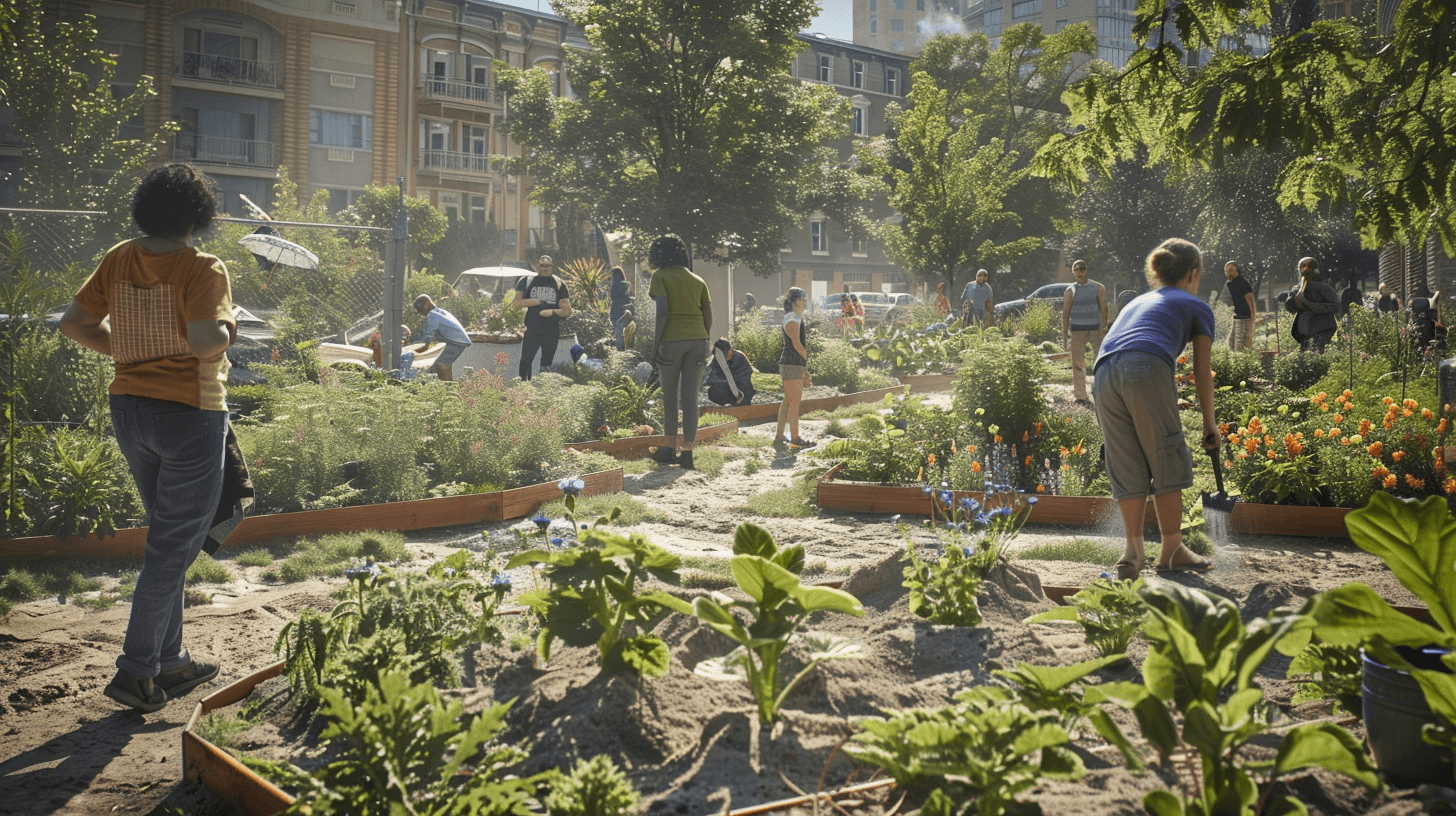Introduction: The Vision of a Spiritual Utopia

What if the key to building a utopian society—a world where peace, prosperity, and human flourishing are not just ideals, but realities—lies in the timeless wisdom of spiritual principles? In a world facing unprecedented challenges, from environmental degradation to social inequality, the search for a better way of living has never been more urgent. Yet, amidst these challenges, the notion of a utopia often feels elusive, relegated to the realm of dreams and fiction.
However, what if we could reframe utopia not as an unattainable ideal but as a practical, ongoing project that each of us can contribute to? By grounding this vision in spiritual principles—values that have guided humanity for millennia—we can chart a path toward a more harmonious and just society. This article will explore how spiritual principles can serve as the foundation for creating a utopia, deconstructing conventional assumptions, and offering novel insights into how these principles can be applied to transform our world.
By the end of this article, you will not only have a deeper understanding of how spiritual principles can shape society but also practical guidance on how to contribute to this transformation in your own life. Whether you are a spiritual seeker, a community leader, or simply someone who believes in the possibility of a better world, this guide will provide you with the tools and inspiration to take meaningful action.
Understanding the Concept of Utopia in a Spiritual Context

The concept of utopia has captivated human imagination for centuries, often depicted as a perfect society where everyone lives in harmony. The word “utopia,” coined by Sir Thomas More in his 1516 book of the same name, literally means “no place” in Greek—a play on words suggesting that such a society does not exist. More’s vision of utopia was both an ideal and a critique of the political and social structures of his time, a theme that has persisted in utopian literature ever since.
However, from a first principles perspective, we must re-examine the very foundation of what utopia means. Instead of viewing utopia as a static, unattainable ideal, we can redefine it as a dynamic process—a continual striving toward a society that aligns with our highest values. In this context, utopia is not a destination but a journey, one that evolves as our understanding of spiritual principles deepens.
To anchor this redefinition in a spiritual context, we can draw on various religious and philosophical traditions that have envisioned ideal societies. For example, in Hinduism, the concept of “Satya Yuga” or the “Age of Truth” represents a period of moral and spiritual purity. In Buddhism, the idea of a “Pure Land” is a realm free from suffering, attainable through spiritual practice. Even in secular humanism, the idea of a “good society” is one where human potential is maximized, and ethical principles guide social interactions.
These spiritual visions of utopia share common themes: they are societies where compassion, justice, and unity prevail, where individuals live in harmony with each other and with nature. By understanding utopia through this lens, we can see it not as a fixed, perfect state, but as a process of continual improvement, guided by spiritual principles.
The Role of Spiritual Principles in Utopia
Spiritual principles are the ethical and moral guidelines derived from religious or philosophical traditions that shape how we live our lives. These principles—such as love, compassion, non-violence, and integrity—are not just personal virtues but can also serve as the foundation for societal structures.
In the context of creating a utopia, spiritual principles provide the blueprint for a society where individuals and communities thrive. For example, the principle of compassion can inform how we design social welfare systems, ensuring that the most vulnerable are cared for. The principle of non-violence can shape our approach to conflict resolution, prioritizing dialogue and understanding over aggression.
What makes spiritual principles particularly powerful in the quest for a utopia is their universality. While they may be articulated differently across cultures and religions, the core values—such as kindness, respect for life, and the pursuit of truth—are shared by humanity. This universality makes spiritual principles a unifying force, capable of transcending cultural and political boundaries to create a truly global utopia.
Why Spiritual Principles Matter
In a world increasingly defined by materialism, competition, and division, the relevance of spiritual principles cannot be overstated. These principles offer a counterbalance to the forces that drive inequality, environmental destruction, and social discord. By integrating spiritual values into the fabric of society, we can address the root causes of these issues rather than just their symptoms.
For instance, the spiritual principle of sustainability—reverence for all life—can guide our environmental policies, leading to practices that protect the planet for future generations. The principle of justice, rooted in the idea of fairness and equality, can inform our legal systems, ensuring that they serve all people equitably. And the principle of unity can help bridge divides between communities, fostering a sense of global citizenship.
In essence, spiritual principles matter because they provide a moral compass that can guide both individuals and societies toward a higher state of being. They remind us that true progress is not measured by economic growth or technological advancement alone, but by the extent to which we align our actions with our deepest values.
Core Spiritual Principles for Building a Utopia

Compassion is the bedrock of any utopian vision. It is the capacity to understand and feel the suffering of others, coupled with a desire to alleviate that suffering. In a utopian society, compassion would be the guiding force behind all social interactions and institutions.
To apply compassion in practice, consider the example of healthcare. A compassionate healthcare system would prioritize patient well-being over profit, ensuring that everyone has access to the care they need, regardless of their financial situation. It would also focus on preventative care, addressing the root causes of illness—such as poverty and environmental factors—rather than just treating symptoms.
Empathy, closely related to compassion, is the ability to put oneself in another’s shoes. In a utopian society, empathy would be cultivated from a young age through education and social practices that encourage understanding and cooperation. For instance, schools could incorporate empathy training into their curricula, teaching children how to listen, communicate, and resolve conflicts with others in a compassionate manner.
Unity and Oneness
The principle of unity is grounded in the idea that all beings are interconnected, part of a larger whole. This concept is central to many spiritual traditions, from the Buddhist idea of interdependence to the Hindu concept of Brahman, the ultimate reality that underlies all existence.
In a utopian society, the principle of unity would manifest in a global community where individuals see themselves as part of an interconnected web of life. This would influence everything from environmental policies—recognizing that harm to one part of the ecosystem affects the whole—to social structures that promote inclusivity and cooperation.
To foster a sense of oneness, societal practices could include rituals or ceremonies that emphasize our shared humanity. For example, communities could celebrate global holidays that honor the interconnectedness of all life, bringing people together across cultural and national boundaries. Educational systems could also play a role by teaching the history and culture of different peoples, promoting a deeper understanding and appreciation of diversity.
Non-Violence and Peace
The principle of non-violence, or Ahimsa, is a cornerstone of many spiritual traditions, particularly Hinduism, Buddhism, and Jainism. It is the commitment to avoid causing harm to any living being, not just through physical actions but also through words and thoughts.
In a utopian society, non-violence would be the foundation of all conflict resolution and justice systems. This would involve not only the absence of physical violence but also the promotion of peace through understanding, dialogue, and reconciliation. For instance, legal systems could be designed to focus on restorative justice, which seeks to heal the harm caused by wrongdoing rather than merely punishing the offender.
Peace education would also be a critical component of this utopian vision. Schools could teach students the skills needed to resolve conflicts peacefully, such as active listening, empathy, and negotiation. Community programs could offer training in non-violent communication and meditation, helping individuals cultivate inner peace as a means of contributing to outer peace.
Sustainability and Respect for Nature
The spiritual principle of sustainability is rooted in the idea of reverence for all life and the recognition that humans are not separate from nature but an integral part of it. This principle challenges the modern, extractive approach to the environment, advocating instead for a relationship based on stewardship and respect.
In a utopian society, sustainability would be the guiding principle behind all economic and environmental policies. This would involve transitioning to renewable energy sources, implementing sustainable agriculture practices, and protecting natural habitats. Urban planning would prioritize green spaces, clean air, and water, and communities would be designed to minimize waste and resource consumption.
Education would play a crucial role in fostering a culture of sustainability. Schools could teach students about the interconnectedness of all life and the importance of protecting the environment. Community initiatives could promote sustainable living practices, such as zero-waste lifestyles, permaculture, and local food production.
Integrity and Ethical Living
Integrity is the quality of being honest and having strong moral principles. It involves living in alignment with one’s values, even when it is difficult or inconvenient. In a utopian society, integrity would be the cornerstone of personal and collective behavior, ensuring that all actions are guided by ethical considerations.
Ethical living, grounded in integrity, would shape every aspect of life, from business practices to interpersonal relationships. For instance, businesses in a utopian society would operate transparently, with a commitment to fairness, social responsibility, and environmental stewardship. Consumers, in turn, would make purchasing decisions based on the ethical practices of companies, supporting those that align with their values.
Education would again be pivotal in cultivating integrity. Schools could emphasize character education, teaching students the importance of honesty, fairness, and responsibility. Communities could also create systems of accountability that encourage ethical behavior, such as public recognition of integrity in action or the establishment of ethical review boards for businesses and organizations.
Practical Applications of Spiritual Principles in Society

Governance is one of the most critical areas where spiritual principles can be applied to create a utopia. A government rooted in spiritual values would prioritize the well-being of all citizens, ensuring that policies are fair, just, and compassionate.
One practical application of spiritual governance is the concept of “servant leadership,” where leaders see their role as serving the needs of the people rather than wielding power for personal gain. This approach would involve participatory decision-making processes, where citizens have a direct say in the policies that affect their lives. Governments could also implement “gross national happiness” metrics, as seen in Bhutan, where the success of a nation is measured not just by economic output but by the overall well-being of its people.
Another area where spiritual principles could influence governance is in the justice system. A spiritually guided justice system would focus on rehabilitation and restoration rather than punishment. This could involve restorative justice programs, where offenders work to repair the harm they have caused and reconcile with their victims and communities.
Education for a Utopian Society
Education is the foundation of any society, and in a utopian vision, it would be designed to cultivate not just intellectual abilities but also spiritual and moral development. An education system based on spiritual principles would emphasize the holistic development of students, nurturing their minds, bodies, and spirits.
Curricula in a utopian society would include subjects like ethics, emotional intelligence, and global citizenship, alongside traditional academic subjects. Schools would foster a culture of compassion and cooperation, encouraging students to see themselves as part of a global community. Experiential learning, such as community service and environmental stewardship, would be integral to the educational process, helping students apply spiritual principles in real-world contexts.
Teachers in this system would be viewed as mentors and guides, helping students discover their unique talents and purpose. The goal of education would not be merely to prepare students for the workforce but to help them become compassionate, ethical, and responsible members of society.
Community Building and Social Practices
Communities are the building blocks of society, and in a utopian vision, they would be organized around spiritual principles. This could involve the creation of intentional communities, where members share common values and work together to create a harmonious living environment.
One example of this is the concept of “eco-villages,” which are communities designed to be socially, economically, and ecologically sustainable. These communities often incorporate spiritual practices such as meditation, yoga, and communal rituals, fostering a deep sense of connection among members.
In a broader sense, social practices in a utopian society would be designed to promote inclusivity, cooperation, and mutual support. This could involve community kitchens where people share meals, time banking systems where services are exchanged without money, and cooperative businesses where workers have a stake in the ownership and decision-making processes.
Economic Systems Aligned with Spirituality
The economy is often seen as a driver of inequality and environmental degradation, but it doesn’t have to be this way. In a utopian society, economic systems would be aligned with spiritual principles, promoting fairness, sustainability, and the well-being of all.
One approach to this is the concept of “shared abundance,” where resources are distributed based on need rather than profit. This could involve the creation of cooperative businesses, where profits are shared among workers and reinvested in the community. Another example is the “circular economy,” which aims to eliminate waste by keeping resources in use for as long as possible through recycling, reuse, and repair.
Spiritual principles could also guide consumer behavior, encouraging individuals to make purchasing decisions based on the ethical practices of companies. This could involve supporting fair trade, buying local, and reducing consumption to minimize environmental impact.
Challenges and Opportunities in Creating a Utopian Society

One of the biggest challenges in creating a utopian society is overcoming skepticism and resistance. Many people view utopia as an unrealistic or even dangerous ideal, often due to historical attempts that have failed or led to authoritarianism.
To address this, it’s important to communicate the vision of a spiritual utopia as an evolving process rather than a fixed state. This means acknowledging that mistakes will be made and that the journey toward a utopia involves continuous learning and adaptation. It’s also crucial to emphasize that a utopian society based on spiritual principles is not about imposing a rigid set of rules but about fostering an environment where individuals and communities can thrive.
Another way to overcome resistance is through dialogue and inclusion. People are more likely to support a vision of utopia if they feel that their voices are heard and their concerns are addressed. This could involve public forums, participatory decision-making processes, and ongoing education about the benefits of a spiritually guided society.
Balancing Idealism with Practicality
Creating a utopia requires a balance between idealism and practicality. While it’s important to have a vision of what a utopian society could be, it’s equally important to take practical, incremental steps toward that vision.
One way to achieve this balance is through the concept of “pragmatic idealism,” which involves setting ambitious goals but being flexible in how they are achieved. This could mean starting with small, manageable projects that demonstrate the benefits of spiritual principles in action, such as community gardens, cooperative businesses, or restorative justice programs.
It’s also important to recognize that progress may be slow and that setbacks are inevitable. By maintaining a long-term perspective and staying committed to the core values of a utopian vision, it’s possible to make steady progress toward a better society.
Opportunities for Growth and Evolution
While there are challenges in creating a utopian society, there are also tremendous opportunities for growth and evolution. As more people embrace spiritual principles and work together to build a better world, new possibilities will emerge that were previously unimaginable.
One opportunity is the potential for global cooperation. In an increasingly interconnected world, it’s possible for people from different cultures and backgrounds to come together around shared values and goals. This could lead to the development of new forms of governance, economy, and social organization that are more inclusive, sustainable, and just.
Another opportunity is the potential for personal and collective transformation. As individuals and communities align their lives with spiritual principles, they can experience profound shifts in consciousness, leading to greater creativity, compassion, and wisdom. This, in turn, can inspire others to join the journey toward a utopian society, creating a positive feedback loop of growth and evolution.
Inspiring Real-World Examples of Spiritual Utopias

Throughout history, there have been numerous attempts to create societies based on spiritual principles. While many of these attempts faced challenges, they offer valuable lessons for today’s efforts to build a utopia.
One example is the Anabaptist communities in Europe during the 16th century, which sought to create a society based on Christian principles such as non-violence, communal living, and simplicity. Despite facing persecution, these communities survived and evolved, with some, like the Amish, continuing to practice their way of life to this day.
Another example is the Shaker communities in the United States, which were founded in the 18th century on the principles of celibacy, communal ownership, and equality. The Shakers created highly organized and self-sufficient communities, known for their craftsmanship and innovation. While their numbers have dwindled, their legacy of simplicity, integrity, and equality continues to inspire.
Modern-Day Utopian Communities
Today, there are numerous communities and movements around the world that are actively working to create a utopia through spiritual principles. These communities offer living examples of how spiritual values can be integrated into everyday life and society.
One such community is Auroville, an international township in India founded in 1968 with the goal of creating a place where people from all over the world could live in peace and harmony, regardless of nationality, religion, or politics. Auroville is based on the teachings of Sri Aurobindo and The Mother, who envisioned a society where human potential could be fully realized. The community focuses on sustainable living, education, and spiritual development, and has become a model for intentional communities worldwide.
Another example is the Findhorn Foundation in Scotland, which was founded in 1962 as a spiritual community and eco-village. Findhorn is known for its focus on co-creation with nature, sustainable living, and spiritual growth. The community has attracted people from all over the world who are interested in exploring new ways of living that are in harmony with the earth and each other.
Lessons Learned
These real-world examples of spiritual utopias provide valuable insights into what it takes to build a society based on spiritual principles. One key lesson is the importance of adaptability and resilience. All of these communities have faced challenges, whether from external pressures or internal conflicts, but they have survived and evolved by staying true to their core values while being open to change.
Another lesson is the power of shared vision and collective effort. In each of these communities, people have come together around a common vision of what a better world could look like, and they have worked together to make that vision a reality. This sense of shared purpose has been a driving force behind their success.
Finally, these examples show that creating a utopia is not about achieving perfection but about the ongoing process of striving toward a higher ideal. It’s about creating spaces where people can live according to their highest values and where they can continue to grow and evolve both individually and collectively.
The Personal Journey Towards Contributing to a Spiritual Utopia

Creating a utopia starts with the individual. Before we can build a society rooted in spiritual principles, we must first cultivate those principles within ourselves. Personal development and spiritual growth are essential components of this process, as they enable us to align our actions, thoughts, and intentions with the higher values we wish to see in the world.
Mindfulness and Meditation: One of the most effective ways to cultivate spiritual growth is through mindfulness and meditation. These practices help us become more aware of our thoughts and emotions, allowing us to act from a place of clarity and compassion rather than reacting out of fear or anger. Regular meditation can also deepen our connection to our inner selves, fostering a sense of peace and oneness with the world around us.
Self-Reflection and Journaling: Another powerful tool for personal development is self-reflection. Taking time each day to reflect on our actions, thoughts, and intentions allows us to identify areas where we may not be living in alignment with our values. Journaling can be particularly helpful in this regard, as it provides a space to explore our inner world and track our progress over time.
Learning and Growth: Personal development is an ongoing process that involves continuously learning and growing. This can be achieved through reading spiritual texts, attending workshops or retreats, or simply engaging in conversations with others who share similar values. The key is to remain open to new ideas and perspectives, and to be willing to challenge our own assumptions and beliefs.
Service and Compassion: Finally, one of the most powerful ways to cultivate spiritual growth is through service to others. By helping those in need, we not only contribute to the well-being of our communities but also deepen our own sense of compassion and connection to the world. Acts of service can take many forms, from volunteering at a local charity to simply offering a kind word or gesture to someone in need.
Taking Action in Everyday Life
While personal development is important, it is not enough on its own to create a utopia. We must also take action in our everyday lives to bring our vision of a better world into reality. This involves making conscious choices that align with our values and actively working to create positive change in our communities.
Ethical Consumption: One way to take action is through ethical consumption. This means making purchasing decisions that reflect our values, such as supporting fair trade, buying locally produced goods, and reducing our environmental impact. By choosing products and services that align with our spiritual principles, we can help create a market for goods that promote social and environmental well-being.
Community Involvement: Another important aspect of taking action is getting involved in our communities. This can involve volunteering, participating in local decision-making processes, or simply getting to know our neighbors and building strong, supportive relationships. By actively engaging with our communities, we can help create a culture of compassion, cooperation, and mutual support.
Advocacy and Activism: In addition to personal and community actions, advocacy and activism are powerful tools for creating broader societal change. This can involve raising awareness about important issues, lobbying for policy changes, or participating in peaceful protests. The key is to use our voices and influence to promote the values we believe in and to work toward creating a society that reflects those values.
Encouraging Others to Join the Journey
Creating a utopia is not something that can be achieved alone; it requires the collective effort of many people working together toward a common vision. As we work on our own personal development and take action in our communities, it is important to encourage others to join us on this journey.
Leading by Example: One of the most effective ways to inspire others is by leading by example. When people see us living in alignment with our values and taking action to create positive change, they are more likely to be inspired to do the same. This can create a ripple effect, where our actions inspire others, who in turn inspire others, and so on.
Sharing Knowledge and Resources: Another way to encourage others is by sharing knowledge and resources. This can involve sharing books, articles, or other materials that have inspired us, or simply having conversations with others about the importance of spiritual principles in creating a better world. By providing others with the tools and information they need to get started, we can help them take the first steps on their own journey.
Building Community: Finally, building community is essential for creating a utopia. This involves creating spaces where people can come together to share ideas, support one another, and work toward common goals. Whether through formal organizations or informal gatherings, building community helps to create a sense of belonging and shared purpose that is essential for creating lasting change.
Conclusion: Embarking on the Path to a Spiritual Utopia

The journey toward creating a utopia through spiritual principles is both a personal and collective endeavor. It requires each of us to cultivate our own spiritual growth, take conscious action in our everyday lives, and work together with others to build a society that reflects our highest values.
While the challenges may be great, the opportunities for transformation are even greater. By grounding our efforts in spiritual principles such as compassion, unity, non-violence, sustainability, and integrity, we can create a world where everyone has the opportunity to thrive. This is not a distant, unattainable ideal but a practical, ongoing process that each of us can contribute to in our own unique way.
As we embark on this journey, let us remember that creating a utopia is not about achieving perfection but about striving toward a higher ideal. It is about creating spaces where we can live according to our highest values, where we can continue to grow and evolve both individually and collectively. By taking the first steps on this path—whether through personal development, community involvement, or advocacy—we can help create the foundation for a more harmonious and just society.
Now is the time to take action. Reflect on the spiritual principles that resonate most with you, and start implementing them in your life. Explore the resources and communities mentioned in this article, and join the growing movement of people who are working to create a better world. Together, we can turn the vision of a spiritual utopia into a reality—one action, one choice, and one step at a time.







